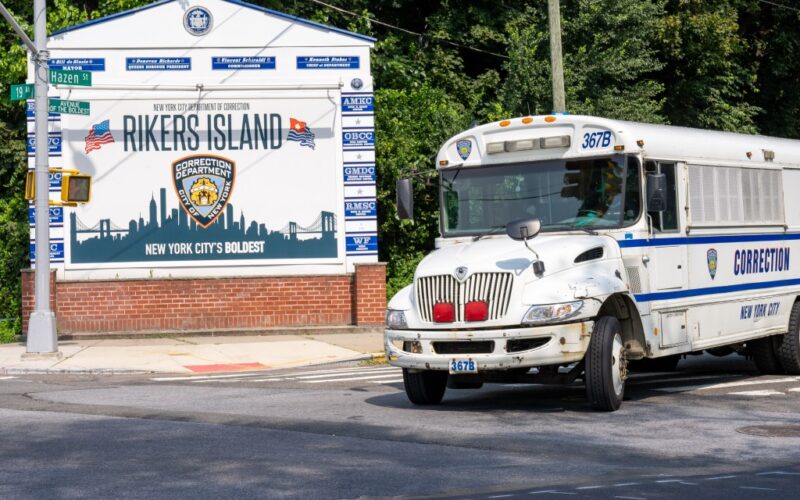Rikers Island is a humanitarian crisis, especially for those with severe mental illness. Instead of offering care, the jail isolates, neglects, and dehumanizes people who need treatment — not incarceration. As someone who has worked as a clinical social worker for more than a decade — first with individuals mandated to treatment by parole, and later on Rikers Island, I have seen firsthand how the system creates a vicious cycle for those it claims to rehabilitate.
As a clinical supervisor and associate director of mental health, I supervised a mental observation unit and clinical program. Before arriving, I had heard many horror stories about Rikers, but I was not prepared for what I witnessed in the mental health units. Despite my efforts, I quickly recognized that the system itself was the biggest barrier to change.
On Rikers, patients with severe mental illness were often “deadlocked” — confined to their cells for weeks and even months without access to their medication, phone, shower, or any human contact. As a result they smeared feces, banged, and screamed day and night. Officers marked their cells with white tags instead of documenting the practice, knowing it was not allowed. Once someone was deadlocked, they were forgotten.
This wasn’t solitary confinement — it was worse. Officers often locked up individuals simply because they “acted weird” or came from different units and wanted to see how they adapted to their environment. Their mental health deteriorated, which reinforced the officer’s excuse to keep them deadlocked.
Many of these individuals were awaiting transfer to facilities operated by the state Office of Mental Health because they were found unfit to continue their court proceedings. After spending time in one of these facilities, they would return stable and able to engage in conversation. But back on Rikers, they would decompensate. Unfortunately, the cycle continued, and people were often deadlocked repeatedly.
There were numerous times I could not eat lunch in my office because I could smell the feces and hear my patients screaming. I could not concentrate on my work while my patients screamed to be let out. I watched their human rights being violated each day. These individuals were someone’s son, brother, father, and community members, yet they were treated as less than human.
New York jails and prisons house more individuals with mental illness than any psychiatric hospital in the country. Rikers Island is a stark example of this, where more than 1,400 people are diagnosed with a serious mental illness. There is no treatment on Rikers. We didn’t just fail these individuals I worked with. We destroyed them.
Every single day, I carry the weight of those I left behind. Their stories are etched in my mind, and the inhumane treatment they endured haunts me. I think about their struggles, not just while they were incarcerated but also in the community — trying to get housing and quality treatment, and to recover from the further trauma that Rikers exposed them to.
The borough-based jail plan, approved in 2019 by a supermajority of the City Council, is crucial to shuttering Rikers Island — despite Mayor Adams’ reckless musings about abandoning it. But that plan hinges on reducing the number of people incarcerated.
Bills like the Treatment Court Expansion Act would shift the focus toward providing care and resources for individuals with severe mental illness and substance addiction instead of sending them to Rikers, or locking them away in asylums that New York State rightly abandoned decades ago. This act would allow for the expansion of mental health and drug treatment courts across New York.
By passing the Treatment Court Expansion Act, we would shrink the number of people in New York City jails and finally close Rikers Island. We could also make our communities safer. Mental health and drug treatment courts have been shown to lower rearrest rates by 50%. Treatment does work.
Additionally, we need to fund the community based programs that my patients desperately needed. Instead of spending $1,390 each day to incarcerate just one individual on Rikers Island, we would reinvest that money in comprehensive services proven to keep vulnerable people from spiraling into crisis and getting caught up in the criminal legal system. These include Justice-Involved Supportive Housing (JISH), Intensive Mobile Treatment (IMT) teams, Forensic Assertive Community Treatment (FACT) teams, and crisis respite centers, among others named in the City Council’s budget priorities.
If we truly want safer and healthier communities, we must close Rikers and build these systems of care in our communities. There is no time to waste.
Rzewinski is a licensed clinical social worker who was a clinical supervisor on Rikers Island from December 2023 to September 2024.








